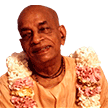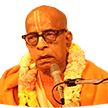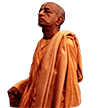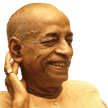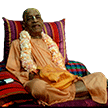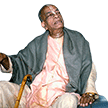Doubt - an essential subject: Difference between revisions
(Created page with "Category:Essential Subjects <!----------------------- edit below this line -----------------------> <!------------------------ begin introduction text --------------------...") |
(Vanibot #0041: Moves Choose Another box to the end) |
||
| Line 2: | Line 2: | ||
<!----------------------- edit below this line -----------------------> | <!----------------------- edit below this line -----------------------> | ||
<!------------------------ begin introduction text ------------------------> | <!------------------------ begin introduction text ------------------------> | ||
Doubt is one of the important functions of intelligence; blind acceptance of something does not give evidence of intelligence. Therefore, in order to cultivate intelligence, one should be doubtful in the beginning. But doubting is not very favorable when information is received from the proper source. By intelligence only one can understand things as they are. By intelligence only can one understand whether or not he is the body. The study to determine whether one's identity is spiritual or material begins in doubt. When one is able to analyze his actual position, the false identification with the body is detected. This is viparyāsa. When false identification is detected, then real identification can be understood. | |||
Srila Prabhupada's books, lectures, conversations and letters offer a comprehensive presentation of this essential subject as seen in the Vaniquotes '''[[Vaniquotes:Category:Doubt|Doubt]]''' category. An introduction from his books is given below in the following | Srila Prabhupada's books, lectures, conversations and letters offer a comprehensive presentation of this essential subject as seen in the Vaniquotes '''[[Vaniquotes:Category:Doubt|Doubt]]''' category. An introduction from his books is given below in the following 10 quotes. | ||
<!-------- end introduction text and don't touch next three lines ---------> | <!-------- end introduction text and don't touch next three lines ---------> | ||
---- | ---- | ||
== Quotes from Srila Prabhupada's books == | == Quotes from Srila Prabhupada's books == | ||
<!----------------- edit quote boxes below this line -----------------> | <!----------------- edit quote boxes below this line -----------------> | ||
{{VaniQuotebox| | {{VaniQuotebox|Better than the brahmana who knows the purpose of the Vedas is he who can dissipate doubts, and better than him is one who follows the brahminical principles. Better than him is one who is liberated from all contamination, and better than him is a devotee|Better than the brāhmaṇa who knows the purpose of the Vedas is he who can dissipate all doubts, and better than him is one who strictly follows the brahminical principles. Better than him is one who is liberated from all material contamination, and better than him is a pure devotee, who executes devotional service without expectation of reward. '''(Śrīmad-Bhāgavatam 3.29.32)'''}} | ||
{{VaniQuotebox| | {{VaniQuotebox|Aryans do not deviate from the instructions of Krsna, nor do they have doubts about Krsna, but non-Aryans and other demoniac people fail to follow the instructions of Bhagavad-gita and Srimad-Bhagavatam|Āryans do not deviate from the instructions of Kṛṣṇa, nor do they have doubts about Kṛṣṇa, but non-Āryans and other demoniac people fail to follow the instructions of Bhagavad-gītā and Śrīmad-Bhāgavatam. This is because they have been trained in sense gratification at the cost of all other living entities. Nūnaṁ pramattaḥ kurute vikarma: (SB 5.5.4) their only business is to indulge in all kinds of forbidden activities for sense gratification. Yad indriya-prītaya āpṛṇoti: they deviate in this way because they want to gratify their senses. '''(Śrīmad-Bhāgavatam 6.16.43)'''}} | ||
{{VaniQuotebox| | {{VaniQuotebox|By intelligence only can one understand whether or not he is the body. The study to determine whether one's identity is spiritual or material begins in doubt|By intelligence only can one understand whether or not he is the body. The study to determine whether one's identity is spiritual or material begins in doubt. When one is able to analyze his actual position, the false identification with the body is detected. This is viparyāsa. When false identification is detected, then real identification can be understood. Real understanding is described here as niścayaḥ, or proved experimental knowledge. '''(Śrīmad-Bhāgavatam 3.26.30)'''}} | ||
{{VaniQuotebox| | {{VaniQuotebox|By knowing the science of God, one gradually becomes freed from material attachments, and one's doubtful mind becomes crystal clear by the grace of the Lord|When one attains brahminical qualifications, he becomes happy and enthusiastic to render devotional service to the Lord. Automatically the science of God is unveiled before him. By knowing the science of God, one gradually becomes freed from material attachments, and one's doubtful mind becomes crystal clear by the grace of the Lord. One who attains this stage is a liberated soul and can see the Lord in every step of life. This is the perfection of sambhava, as described in this mantra of Śrī Īśopaniṣad. '''(Sri Isopaniṣad 13)'''}} | ||
{{VaniQuotebox| | {{VaniQuotebox|Devotees who are always absorbed in thoughts of Krsna will soon see Krsna face to face without a doubt|Devotees who are always absorbed in thoughts of Kṛṣṇa will soon see Kṛṣṇa face to face without a doubt. In other words, devotees who are always engaged in Kṛṣṇa consciousness and are fully absorbed in thoughts of Kṛṣṇa certainly return home, back to Godhead. They then see Kṛṣṇa directly, face to face, talk with Him and enjoy His company. This is confirmed in the Bhagavad-gītā (4.9): tyaktvā dehaṁ punar janma naiti mām eti so ’rjuna. '''(Caitanya-caritāmṛta, Madhya-līlā 13.155)'''}} | ||
{{VaniQuotebox| | {{VaniQuotebox|Dhrtarastra was doubtful about the influence of the place of pilgrimage, and Sanjaya could understand his motive in asking about the situation on the battlefield|Dhṛtarāṣṭra was blind from birth. Unfortunately, he was also bereft of spiritual vision. He knew very well that his sons were equally blind in the matter of religion, and he was sure that they could never reach an understanding with the Pāṇḍavas, who were all pious since birth. Still he was doubtful about the influence of the place of pilgrimage, and Sañjaya could understand his motive in asking about the situation on the battlefield. '''(Bhagavad-gītā 1.2)'''}} | ||
{{VaniQuotebox| | {{VaniQuotebox|Doubt is one of the important functions of intelligence; blind acceptance of something does not give evidence of intelligence|Doubt is one of the important functions of intelligence; blind acceptance of something does not give evidence of intelligence. Therefore the word saṁśaya is very important; in order to cultivate intelligence, one should be doubtful in the beginning. But doubting is not very favorable when information is received from the proper source. In Bhagavad-gītā the Lord says that doubting the words of the authority is the cause of destruction. '''(Śrīmad-Bhāgavatam 6.26.30)'''}} | ||
{{VaniQuotebox| | {{VaniQuotebox|In case of benefit, no one will deny that it is God-sent, but in case of reverses one becomes doubtful about how the Lord could be so unkind to His devotee as to put him in difficulty. Jesus Christ was seemingly put into such great difficulty|In case of benefit, no one will deny that it is God-sent, but in case of loss or reverses one becomes doubtful about how the Lord could be so unkind to His devotee as to put him in great difficulty. Jesus Christ was seemingly put into such great difficulty, being crucified by the ignorant, but he was never angry at the mischief-mongers. That is the way of accepting a thing, either favorable or unfavorable. '''(Śrīmad-Bhāgavatam 1.17.22)'''}} | ||
{{VaniQuotebox|Material mind or senses were unborn when the Lord glanced over material nature. Thus evidence in the Vedas proves that beyond a doubt the Lord has transcendental eyes and a transcendental mind|The Vedas inform us that He alone became many, and when He so desires He glances over material nature. Before He glanced over material nature there was no material cosmic creation. Therefore, His glance is not material. Material mind or senses were unborn when the Lord glanced over material nature. Thus evidence in the Vedas proves that beyond a doubt the Lord has transcendental eyes and a transcendental mind. They are not material. His impersonality therefore is a negation of His materiality, but not a denial of His transcendental personality. '''(Śrīmad-Bhāgavatam, Introduction)'''}} | |||
{{VaniQuotebox|One should not accept as a spiritual master someone who is fool number one, who has no direction according to the scriptural injunctions, whose character is doubtful, who does not follow the principles of devotional service|One should not accept as a spiritual master someone who is fool number one, who has no direction according to the scriptural injunctions, whose character is doubtful, who does not follow the principles of devotional service, or who has not conquered the influence of the six sense-gratifying agents. The six agents of sense gratification are the tongue, the genitals, the belly, anger, the mind and words. Anyone who has practiced controlling these six is permitted to make disciples all over the world. '''(Nectar of Devotion, Chapter 7)'''}} | |||
<!----------------- edit quote boxes above this line -----------------> | <!----------------- edit quote boxes above this line -----------------> | ||
| Line 31: | Line 35: | ||
'''Doubt - [[Vaniquotes:Category:Doubt|explore more within this category]]'''. | '''Doubt - [[Vaniquotes:Category:Doubt|explore more within this category]]'''. | ||
{{EsentialSubjectTotal}} | {{EsentialSubjectTotal}} | ||
<div style="float:left;"> | |||
{{EssentialSubjectnav}} | |||
</div> | |||
__NOTOC__ | __NOTOC__ | ||
__NOEDITSECTION__ | __NOEDITSECTION__ | ||
Latest revision as of 16:14, 22 November 2020
Doubt is one of the important functions of intelligence; blind acceptance of something does not give evidence of intelligence. Therefore, in order to cultivate intelligence, one should be doubtful in the beginning. But doubting is not very favorable when information is received from the proper source. By intelligence only one can understand things as they are. By intelligence only can one understand whether or not he is the body. The study to determine whether one's identity is spiritual or material begins in doubt. When one is able to analyze his actual position, the false identification with the body is detected. This is viparyāsa. When false identification is detected, then real identification can be understood.
Srila Prabhupada's books, lectures, conversations and letters offer a comprehensive presentation of this essential subject as seen in the Vaniquotes Doubt category. An introduction from his books is given below in the following 10 quotes.
Quotes from Srila Prabhupada's books
Doubt - explore more within this category.
Vanipedia has now over 903 introductory articles compiled from Srila Prabhupada's books under the series titled Essential Subjects. All these articles can be seen in the Table of Content on the right side of this article and also here in this Umbrella Category. Browse through them to relish the breadth and depth of Srila Prabhupada's teachings - There is a subject for everyone.


